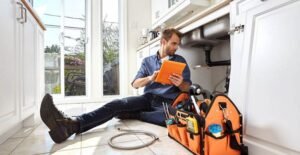Hurricane season begins in June and with August to October traditionally seeing the most activity. Residents in North Carolina aim to protect their homes and HVAC equipment from the weather systems that come their way.
Visit – How to make your AC/HVAC unit work better in Raleigh/Durham | Raleigh News & Observer – for tips on making your HVAC unit work better in North Carolina.
These storms bring not only rain and wind but flooding and power outages that leave homeowners without the comfort of their heating and cooling and other household appliances for hours or as long as days at a time.
Your reliable HVAC service technician will provide instructions on preparing your system for hurricanes and other natural disasters that have the potential to damage your equipment.
Companies like My A/C Guy Heating & Cooling educate and inform clients to take the appropriate steps to protect their systems before, during, and after a storm.
Protecting Your HVAC Equipment for Hurricanes
Quality and qualified North Carolina HVAC service providers help homeowners prepare their heating and cooling equipment before a hurricane or tornado strikes. They aim to reduce damages and get the unit back in operation faster when the power is restored.
You don’t have to wait until there’s an alert for a pending storm before getting ready. Making plans and ensuring the unit is well protected can start upon move-in and is ongoing.
Trim overhanging tree branches
Large tree branches overhanging the outdoor condenser unit or house should be trimmed. A hurricane, tornado, or tropical storm produces high winds that can snap branches like twigs, causing them to fall on the air conditioning unit with force.
You want to protect it from flying branches, a practice you should indulge throughout the year and not only in the summer.
Consider flood insurance
You want to consider the option of flood insurance regardless of whether your mortgage lender requires it, which they do in coastal areas. This insurance is separate from your homeowner’s coverage. Homeowners insurance doesn’t cover flood damages.
For flood damage to be covered by flood insurance, the policy must be in place 30 days before the damage occurs.
The coverage protects against floods from swollen rivers, hurricane storm surge, extraordinary levels or flooding the outdoor unit. It will even provide for replacement of the existing system after the deductible is satisfied. Read here for ways to protect your HVAC unit from flood water.
You can get more details from FEMA – the Federal Emergency Management System’s Myths and Facts About Flood Insurance.
Keep a generator
If your household had no power for a few hours or possibly several days, you might consider buying a portable generator or possibly investing in a whole-house unit. A generator brings the peace of mind of knowing you have comfort, virtually a haven for loved ones during storm recovery.
You want to do due diligence in research to find the ideal generator to meet your needs and fit your budget. The thing to remember is to not wait until a storm alert to shop for the best generator since demand is at its highest as are the prices.
Surge protector installation
In the same way surge protector power strips safeguard electronics, those for the HVAC protect the system from power surges that occur during severe storms. You want to find the options designed specifically for heating and cooling equipment and have the power strip installed professionally.
The best surge protectors can tolerate extreme temperatures and withstand high humidity.
Secure the unit
Hurricane straps will keep elevated air conditioner units on a second story secure when wind gusts are strong. Florida residents are required to bolt their condenser units to hurricane pads.
If you live in an area prone to flooding like North Carolina, it’s wise to have a professional HVAC technician elevate your unit for optimal protection.
Pre-cool your home
On the day of a predicted storm, you want to use the cooling system to pre-cool the household. If you believe the power may go down during a severe storm, cooling the home in advance ensures you’re comfortable as long as possible until the power is restored.
The thermostat should be set to a cooler temperature than usual; windows and doors should be closed tight to ensure the cold air doesn’t escape as well as keeping window treatments closed.
Shut the power to the condenser unit off

The electricity to the heating and cooling system should be shut off before the storm hits. Lightning strikes can cause electrical surges during the storm, resulting in a damaged AC unit. Debris can also get stuck in the outdoor unit, burning out the motor.
It’s recommended to not only shut off the power to the AC system but also fro the thermostat and the circuit breaker for optimal safety.
Final Thought
Following a severe storm, you want to contact a reliable North Carolina HVAC service provider to have your heating and cooling system inspected.
These professionals will recommend viable solutions depending on the extent of the damage. You may be fortunate with no repairs needed or a replacement may be necessary.
In any event, heating and cooling specialists in North Carolina aim to help you recover your sense of safety and comfortability and they do that promptly and efficiently.


